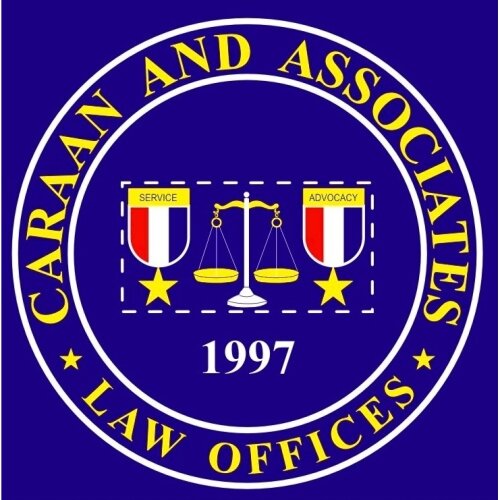Best Mortgage Lawyers in Philippines
Share your needs with us, get contacted by law firms.
Free. Takes 2 min.
Free Guide to Hiring a Real Estate Lawyer
Or refine your search by selecting a city:
List of the best lawyers in Philippines

Dagsaan Monterde Castillo Law and Notary Public (DMC LAW)
15 minutes Free ConsultationAbout Mortgage Law in Philippines
In the Philippines, a mortgage is primarily governed by the Civil Code and other relevant laws such as the Property Registration Decree and specific banking regulations. It is defined as a contract where property is provided as security for the fulfillment of an obligation - typically, the repayment of a loan. The property mortgaged remains in the possession of the debtor, and the mortgage remains until all obligations are fulfilled.
Why You May Need a Lawyer
Seeking legal advice in the field of mortgage might be necessary for several reasons. You might need a lawyer if you're planning to purchase property and need assistance understanding the terms of a mortgage agreement or negotiating with banks or lending institutions. A lawyer can also be crucial if you're facing foreclosure and need representation to explore your options or defend your rights. Additionally, if there are disputes over property boundaries or ownership involving a mortgage, legal help may be required to resolve these issues.
Local Laws Overview
The key aspects of mortgage laws in the Philippines involve understanding the contract of real estate mortgages, the requirements for registration, and the rights and obligations of mortgagor (borrower) and mortgagee (lender). Important considerations include the redemption period, which allows the mortgagee to sell the property if obligations are not fulfilled, subject to conditions laid out in the law. Moreover, understanding the foreclosure process, whether judicial or extrajudicial, is essential for those involved in mortgaged properties.
Frequently Asked Questions
1. What is a mortgage?
A mortgage is a legal agreement where a person borrows money to buy property and pays back the borrowed amount with interest over a specified period while the lender takes a security interest in the property.
2. How does mortgage interest work?
Mortgage interest is the cost of borrowing money, expressed as a percentage of the principal, paid over the term of the loan. It can be either fixed or variable depending on the agreement terms.
3. How can I apply for a mortgage in the Philippines?
To apply, you generally need to approach a bank or financial institution, provide necessary documentation like income proof and identification, and undergo a credit evaluation process.
4. What happens if I default on my mortgage?
If you default, the lender may initiate foreclosure proceedings, potentially leading to the sale of the property to recover the loan amount.
5. What is foreclosure?
Foreclosure is the legal process through which a lender takes control of or sells the mortgaged property due to the borrower's failure to comply with the mortgage agreement terms.
6. What is the difference between judicial and extrajudicial foreclosure?
Judicial foreclosure involves court proceedings, while extrajudicial foreclosure allows the lender to sell the property outside of court if stipulated under a special power of sale in the mortgage agreement.
7. Can I still live in my home during foreclosure?
Yes, you can typically remain in your home until the foreclosure process is completed, which includes public auction, issuance of a certificate of sale, and the lapse of any redemption period.
8. What are redemption rights?
Redemption rights allow borrowers to reclaim their property by paying the entire loan balance, including costs, within a specified period after foreclosure.
9. Can I refinance my mortgage?
Yes, you can refinance, but it will depend on your credit standing, the property's current value, and the prevailing market conditions.
10. Are there government programs for mortgage assistance?
Yes, programs like PAG-IBIG and SSS offer housing loans and mortgage assistance to eligible members under specific terms and conditions.
Additional Resources
Several resources and organizations can provide further assistance with mortgages in the Philippines. These include the Housing and Urban Development Coordinating Council (HUDCC), the Home Development Mutual Fund (PAG-IBIG Fund), the Land Registration Authority (LRA), and the Bangko Sentral ng Pilipinas (BSP). These bodies can provide information, housing loan programs, and regulatory guidelines to better understand your mortgage options.
Next Steps
If you need legal assistance with a mortgage, it is advisable to start by consulting a lawyer who specializes in property law or real estate. Prepare all relevant documents, including the mortgage agreement, communication with the lender, and any notices received. You may also want to research and reach out to organizations like the Integrated Bar of the Philippines (IBP) for referrals or legal aid clinics for free services if necessary. Understanding your rights and obligations under Filipino mortgage law will ensure you are better equipped to handle any issues that may arise.
Lawzana helps you find the best lawyers and law firms in Philippines through a curated and pre-screened list of qualified legal professionals. Our platform offers rankings and detailed profiles of attorneys and law firms, allowing you to compare based on practice areas, including Mortgage, experience, and client feedback.
Each profile includes a description of the firm's areas of practice, client reviews, team members and partners, year of establishment, spoken languages, office locations, contact information, social media presence, and any published articles or resources. Most firms on our platform speak English and are experienced in both local and international legal matters.
Get a quote from top-rated law firms in Philippines — quickly, securely, and without unnecessary hassle.
Disclaimer:
The information provided on this page is for general informational purposes only and does not constitute legal advice. While we strive to ensure the accuracy and relevance of the content, legal information may change over time, and interpretations of the law can vary. You should always consult with a qualified legal professional for advice specific to your situation.
We disclaim all liability for actions taken or not taken based on the content of this page. If you believe any information is incorrect or outdated, please contact us, and we will review and update it where appropriate.
Browse mortgage law firms by city in Philippines
Refine your search by selecting a city.
















